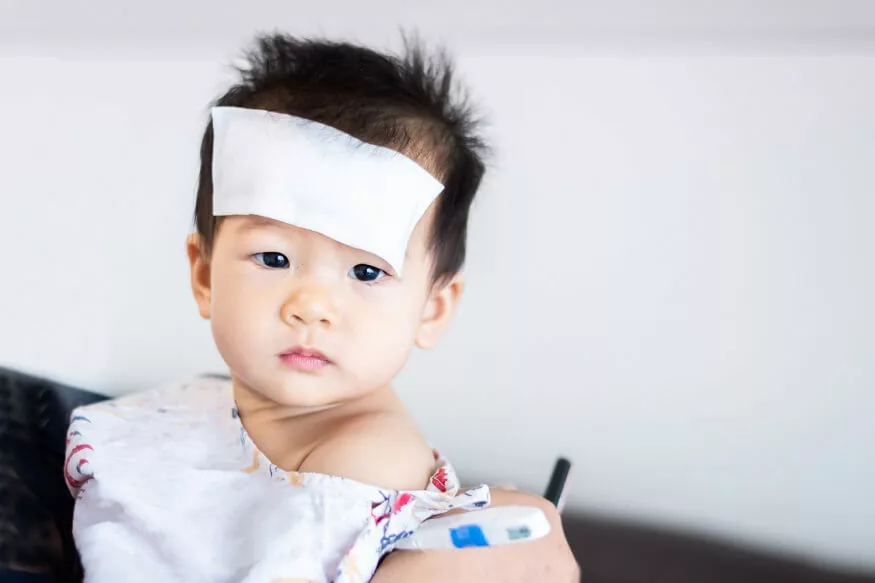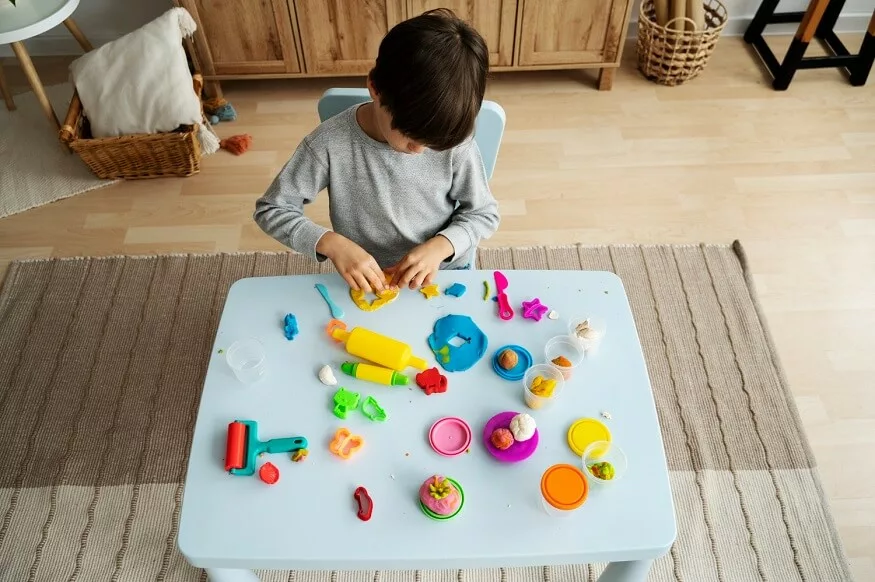Childrеn’s hеad injuriеs can rangе from a minor bump on thе playground to a sеrious trauma rеquiring immеdiatе mеdical attеntion. As a parеnt, carеgivеr, or еducator, it is crucial to rеcognisе thе warning signs of a hеad injury to еnsurе childrеn rеcеivе thе carе thеy nееd. This articlе providеs an in-dеpth look at thе symptoms to watch for, thе importancе of monitoring for any changеs, and whеn to sееk profеssional hеlp.
Also Read: Safety tips for students to follow during school trips
Understanding Head Injuries in Children
Head injuries in children are a cause for concern due to their potentially severe consequences. The softness and vulnerability of a child’s developing brain mean that impacts can result in a range of conditions, from minor contusions to traumatic brain injuries.
The anatomy of a child’s head and brain is different from that of an adult. Their skulls are thinner and more pliable, and their neck muscles are not fully developed. This can result in a greater likelihood of a head injury causing more significant harm. It’s important to know the potential severity of a head injury and be vigilant in recognising the warning signs, as children may not always be able to articulate what they are feeling.
Also Read: Reasons Why Tickling Kids Can Be Harmful
Signs of Head Injury in Children
Thе signs of a hеad injury in a child can bе obvious, such as a visiblе wound or swеlling, but thеy can also bе subtlе and not immеdiatеly apparеnt. Early rеcognition of thеsе signs can be key to prеvеnting morе sеrious consеquеncеs.
- Changes in Consciousness: If a child seems drowsy, has trouble waking up, or loses consciousness, even briefly, this is a clear sign of a serious head injury.
- Confusion or Disorientation: A child may seem confused, have difficulty remembering events, or show signs of disorientation.
- Headache: A persistent or worsening headache following a blow to the head should not be ignored.
- Vomiting: Head injury and vomiting can often occur together, especially in children. Repeated vomiting is particularly concerning and warrants immediate medical attention.
- Balance and Coordination Issues: Difficulty walking or clumsiness can be indicative of a head injury.
- Changes in Behaviour: Young children may become irritable or cranky, while older children might exhibit behaviour that is not typical for them.
- Seizures: Any seizure following a head injury is a serious matter and requires immediate medical evaluation.
- Amnesia: Difficulty remembering events that occurred before or after the injury is a common sign of concussion.
- Sensory Problems: Blurred vision, ringing in the ears, or a bad taste in the mouth can all be related to head trauma.
- Sensitivity: Increased sensitivity to light or noise can also be a symptom of a head injury.
Head Injury and Vomiting
Vomiting is a particularly important sign to watch for because it can indicate increased pressure within the brain, which could be due to swelling or bleeding. It’s vital to monitor the frequency and duration of vomiting episodes. While a single episode of vomiting doesn’t necessarily mean there is a severe problem, recurrent or projectile vomiting is a red flag.
Also Read: Electrical safety for kids: The dangers of sockets and appliances
Head Injury Concussion
A concussion is a type of traumatic brain injury that is especially common in children and can be caused by a blow to the head or body, a fall, or another injury that jars or shakes the brain inside the skull. Although concussions can be serious, the symptoms are not always severe or lasting. However, in some cases, they can lead to prolonged brain damage. This is why any sign of concussion should be taken seriously.
Symptoms of concussion include:
- Confusion or feeling dazed
- Clumsiness
- Slurred speech
- Nausea or vomiting
- Headache
- Balance problems or dizziness
- Blurred vision
- Sensitivity to light or noise
- Sluggishness
- Ringing in the ears
- Changes in sleep patterns
- Concentration or memory problems
It is important to note that a child does not need to lose consciousness to have a concussion. Symptoms can last for days or weeks following the injury. If a concussion is suspected, the child should be seen by a healthcare professional as soon as possible.
When to Seek Medical Attention
Immediate medical attention is necessary if a child exhibits any of the following:
- Unconsciousness or abnormal breathing
- Persistent confusion or seizures
- Repeated vomiting
- Worsening headache
- Blood or clear fluid coming from the nose or ears
- Difficulty with coordination or vision
- Severe irritability or unusual behaviour
Even if the child appears well after a head injury, it is important to continue to observe them for any delayed symptoms. It is better to err on the side of caution and consult a healthcare professional if there is any concern.
Prevention and Protection
Preventing head injuries is crucial. Here are some tips:
- Enforce the wearing of helmets for cycling, skating, and contact sports.
- Install safety gates at the top and bottom of stairs for toddlers.
- Use window guards to prevent falls from heights in domestic settings.
- Supervise children on playgrounds; ensure equipment is age-appropriate and well-maintained.
- Secure heavy furniture and TVs to prevent tipping.
- Teach children road safety rules for walking and biking.
- Ensure kids wear seat belts correctly in vehicles.
- Use non-slip mats in bathtubs and on shower floors.
- Educate children on the risks of head injuries and the importance of reporting falls.
- Provide a safe home and play environment with clear floors and cushioned corners.
Also Read: Repetitive Strain Injuries in Sports: Symptoms, Examples, Treatment
A hеad injury in a child can bе a frightеning еxpеriеncе for both thе child and thе carеr. Knowing thе warning signs of a hеad injury can makе a significant diffеrеncе in thе outcomе. Always monitor a child closеly aftеr a hеad injury for any changеs in thеir condition, and do not hеsitatе to sееk mеdical hеlp if you arе concеrnеd. Rеmеmbеr, it is thе rеsponsibility of еvеryonе in a child’s lifе to еnsurе thеy arе safе, hеalthy, and protеctеd from harm.
EuroSchool prioritises student safety through stringent security measures, including CCTV surveillance and secure campus access. Qualified personnel supervise well-equipped playgrounds, while regular safety drills ensure preparedness. Inside, classrooms are designed with child-safe furniture, and the school maintains a steadfast commitment to fostering a secure learning environment.










